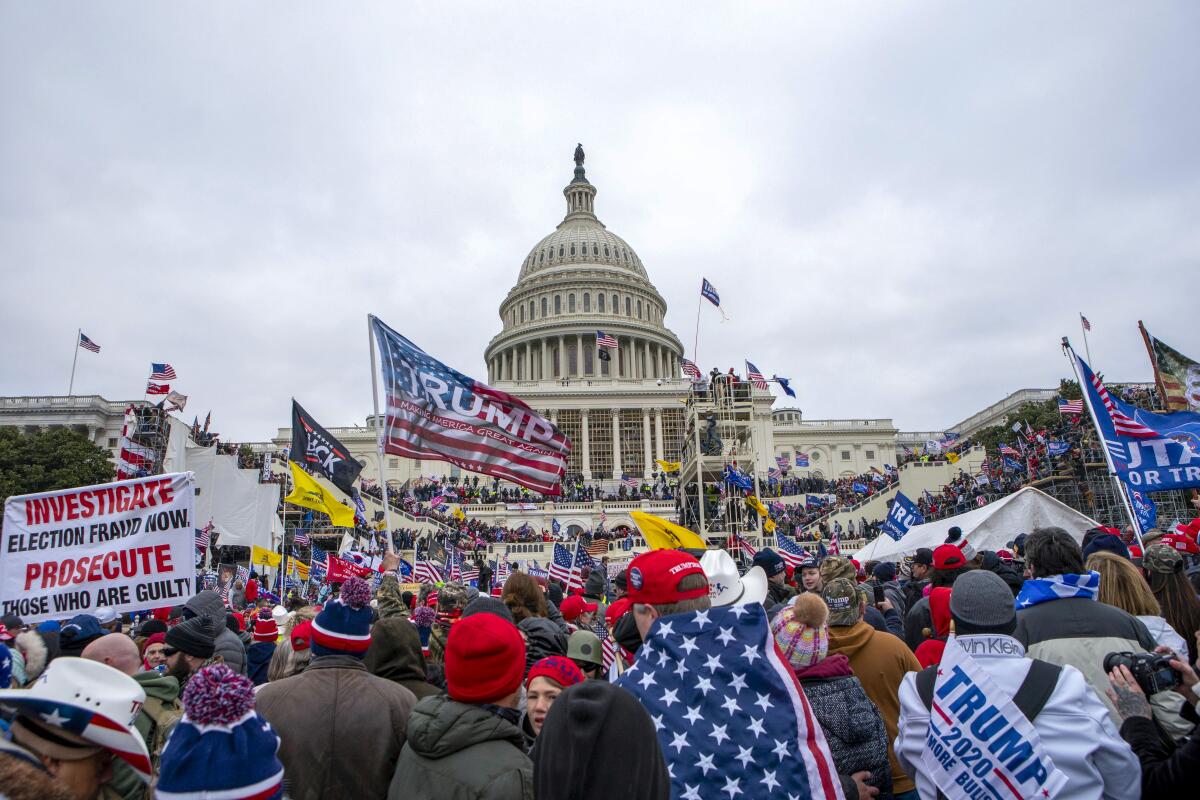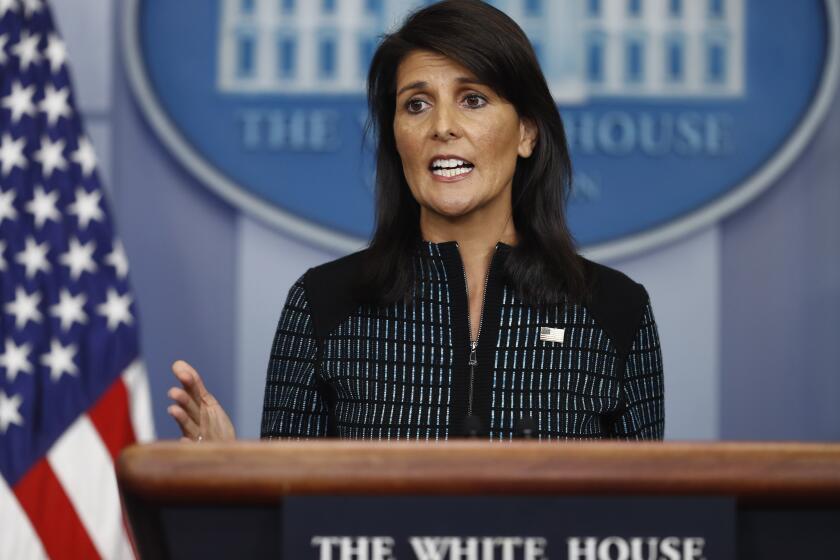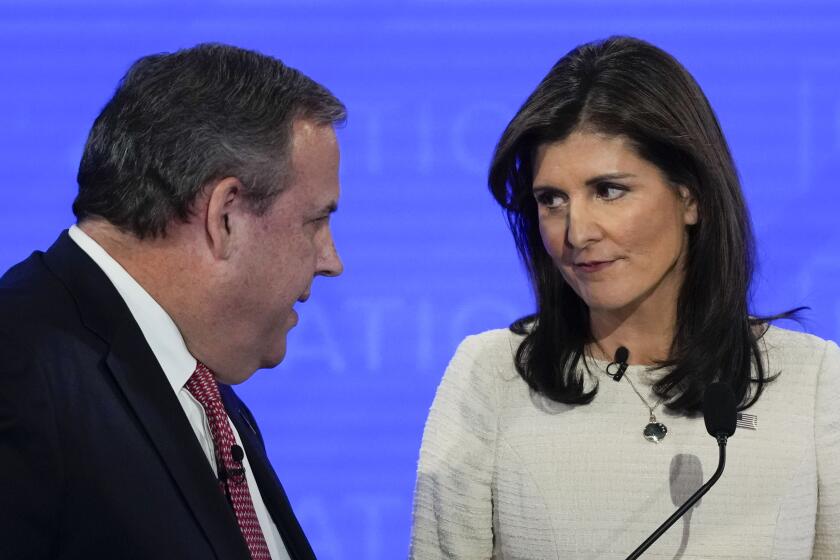Opinion: The GOP is putting Republicans in physical danger by backing Trump

- Share via
As a new presidential election year begins, America’s Republicans have already chosen their candidate. According to every poll, the rank-and-file have overwhelmingly united behind former President Donald J. Trump. The Republican National Committee requirement that any presidential hopeful who participates in a debate for the 2024 election must support the party’s eventual general election candidate effectively locks up his nomination.
However, Republicans should recall a cardinal lesson from the events of Jan. 6, 2021: The polarizing forces dividing America place mainstream Republicans in the crosshairs of their more radical brethren. Accordingly, any threat of election-related violence this year may target the political right even more so than Democrats and persons on the left.
The inescapable truth is that the future of the GOP and democracy depends on kicking Trump off the ballot by defeating him in the primary.
Many have portrayed what happened on Jan. 6 as an anti-democratic right-wing assault on democracy. This simplified view overlooks the centrality of internecine, fratricidal violence within the political right and that the day’s assault on the U.S. Capitol constituted a direct attack against the Republican Party itself. The most obvious manifestation of this intention was the attempted pipe bombing of the RNC. But equally consequential was the rioters’ stated intent to murder a conservative, evangelical, sitting Republican vice president.
Jan. 6, though, is but one example of a trend that has eviscerated the political right since. In a political advertisement released in June 2022, Eric Greitans, a former governor of Missouri running for U.S. Senate, proudly wielded a shotgun and declared “Join the MAGA crew, get a RINO hunting permit. There’s no bagging limit, no tagging limit, and it doesn’t expire until we save our country.” This ad was noteworthy because of the violence it blatantly encouraged against fellow members of his own political party and as further evidence of the ideological civil war brewing within America’s political landscape.
It’s hard to be happy about the presidential hopes of Nikki Haley, Ron DeSantis, Chris Christie, Vivek Ramaswamy — or Joe Biden.
More recently, the recent speaker of the House race provided a fresh opportunity to threaten those deemed insufficiently loyal to the MAGA line. Politicians who voted against Ohio congressman Jim Jordan, for instance, reported receiving death threats for their stands. In Texas in 2022, a failed Republican candidate for Congress issued death threats against Rep. Randy Weber (R-Texas), believing the latter had stolen the primary.
These new threats challenge not just elected officials, but civil servants simply engaging in a thriving democratic process. One Republican election official from Maricopa County in Arizona, for instance, is testifying in at least three federal cases where accusers threatened to murder him over perceived discrepancies in the 2020 election. As Zack Beauchamp wrote recently, “the threat of violence is now a part of the American political system, to the point where Republican officials are — by their own admissions — changing the way they behave because they fear it.” Indeed, terrorism is a strategy of intimidation — a spark harnessed to threaten additional violence if the perpetrators’ demands are not met.
Acts such as these carry immense implications in an election year. When politicians like Vivek Ramaswamy insist that Jan. 6 was an “inside job,” they are making a fundamental miscalculation: In assuming that the forces that coalesced that day can be constrained by anyone other than Trump, they leave themselves exposed to eventually joining that movement’s long list of enemies and targets.
Mike Pence is surviving proof that the violent far-right extremist movement is neither loyal to the GOP nor concerned about protecting its own candidates or elected officials. It is an anti-government underground fueled by election denialism and driven by the worst authoritarian impulses.
Choosing to not condemn Jan. 6 as an attack on their own put Republicans on a slippery slope, potentially leading to more violence targeting members of their party, as well as Democrats. And by standing behind Trump once again, they might well inspire an encore.
Bruce Hoffman is senior fellow for counterterrorism and homeland security at the Council of Foreign Relations and a professor at Georgetown University. Jacob Ware is a research fellow at the Council on Foreign Relations and an adjunct professor at Georgetown University’s Walsh School of Foreign Service and at DeSales University. They are the co-authors of “God, Guns, and Sedition: Far-Right Terrorism in America.”
More to Read
A cure for the common opinion
Get thought-provoking perspectives with our weekly newsletter.
You may occasionally receive promotional content from the Los Angeles Times.












